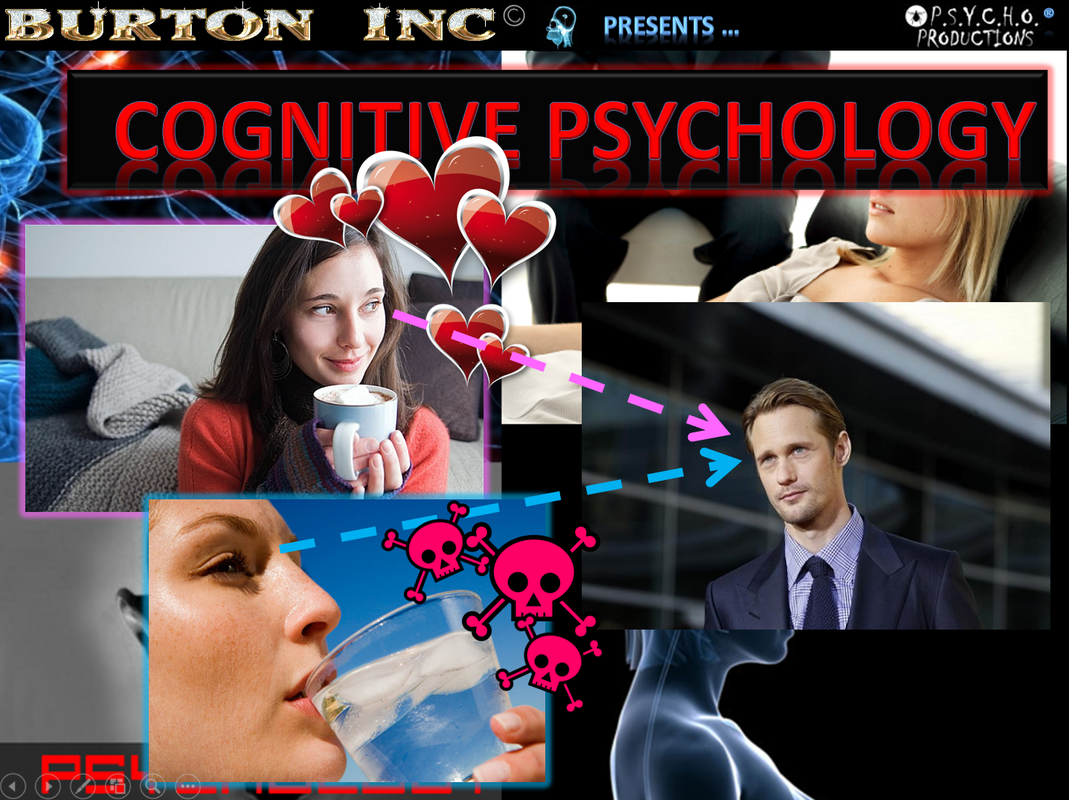| The surprising science of unconscious influences on our thought processes. The human brain is truly bizarre. The more I know about it, the less I understand it. OK, so I finally came to terms with the fact that true and unfettered freewill is dead and buried some time ago. This was hard for me. My universe is not my play thing anymore. The decisions I make, the thoughts I entertain and even the people I'm attracted to are, at least to some extent, governed by processes outside of my awareness. And, if I'm not aware of these influences shaping my thoughts and behaviours, then I'm not truly free in making my own decisions. Take for example, my lovely wife. I chose her, she chose me. A match made in heaven - perfect. End of story, right? Not quite. In the IB Psychology Human Relationships option we study the learning outcome: Examine biological, psychological and social origins of attraction. [Actually, and off topic, if you don't study this option ask your Psychology teacher why - it's fascinating.] It turns out that a lot of our attraction to another person is based on a particular set of immune system genes we both have, that we can both apparently sniff out (an olfactory sense). We are more attracted to those whom we share different major histocompatibility complex genes. Mix these genes together and we have children with stronger, healthier immune systems (conferring them survival and reproductive advantages vis-à-vis evolution). See Wedekind et al. (1995) for more details. We have no idea that this is happening. Our thoughts, decisions and behaviour are being influenced without our awareness, in a major way. Which I can accept, I see the evolutionary logic in it. But Williams and Burgh, the latest study to land on my desk just does my head in. Period. Holding a cold drink makes me perceive you as being a cold person? Williams and Bargh (2008) staged job interviews with their participants. Each participant in their cleverly crafted experiment assumed the role of the interviewer and the interviewees were confederates. Before the interviews commenced another confederate engaged the participant in a lift (elevator) and had them hold either an iced coffee or a hot coffee - the experimental condition. Interviewers given the cold drink to hold judged the hapless interviewee as being less 'warm' and were much less likely to give them the job. The mere fact of unconsciously priming an individual with physical feelings of cold or warmth, influenced perception and ultimately decision-making and behaviour. Our conscious choices may not be such an exercise in free will as we would all like to believe. Our cognitive thought processes are very easily manipulated. You can incorporate this information and this bizarre research study when you study or teach the IB Psychology CLOA learning outcome: With reference to relevant research studies, to what extent is one cognitive process reliable (for example, reconstructive memory, perception/visual illusions, decision‑making/heuristics)? The focus would be on decision‑making and the cognitive heuristics associated with much of our decision-making. And finally, I know you're probably bursting with curiosity as to why feelings of hot and cold can have this very unusual influence on our thoughts. One of two reasons have been proposed. The first being that it is a simple side effect of having a fast, automatic response to familiar stimuli that lessens cognitive demands. Associations that can be formed automatically on the basis of prior knowledge or experience (i.e. priming) usually serve us well, and would have conferred survival benefits. The other, less likely, explanation is that this is an innate response. We have been shaped by evolution to be more attracted to those who can keep us warm and less likely to freeze in our ice age caves. Whatever the reason, knowing that first impressions are all important, hand your job interviewer a cup of delicious hot coffee and shake hands using the nice warm hand that was just holding their coffee. Just watch those job offers come rolling in. | Williams & Bargh (2008)The Williams & Bargh study will most definitely mess with your head! Watch the video below. Read the original 'Science' (oh! prestigious) publication above. Best buy your date a hot chocolate, not that beer? Author: Derek Burton - Passionate about IB Psychology |
|
|
IB DipLOMA PsychologY:The IB Psychology Blog. A place to share research and teaching and learning ideas for those studying and teaching Psychology for the IB Diploma Programme. Archives
April 2016
Categories
All
|


 RSS Feed
RSS Feed